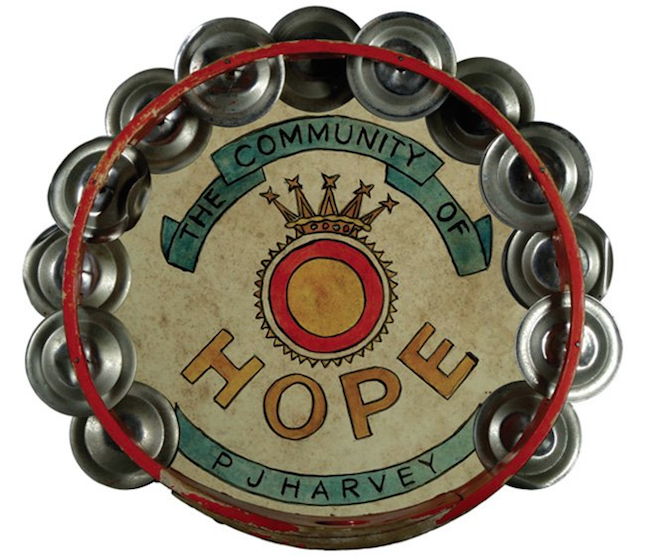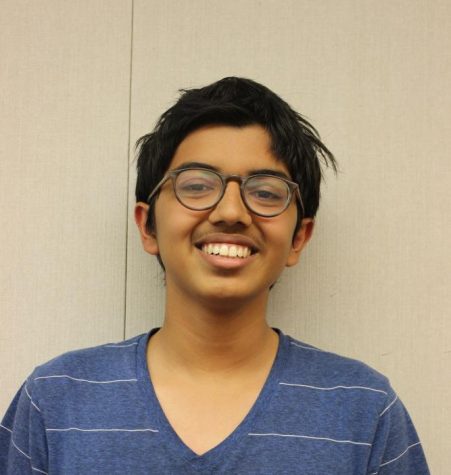“The Community of Hope” mirrors the ignorance of an insensitive, hyperreactive America
April 14, 2016
Controversy surrounding new PJ Harvey single “The Community of Hope” serves as a brutal reminder of American society’s increasing inability to have a proper discussion.
“The Community of Hope” depicts a very real low-income, predominantly African-American neighborhood in the 7th Ward of Washington, D.C.. The song confusingly shares its title with an actual outreach organization working in the area which Harvey depicts in the song.
The controversy surrounds the way Harvey depicts said neighborhood. She sings that “the school looks like a s***hole” and characterizes the denizens of the area as “zombies” wandering through “drug town.” Strangely, the song ends with the refrain, “They’re gonna build a Walmart here!”
The lyrics, at first glance, come off as apathetic, insensitive and slightly racist, the disaffected musings of a privileged observer (Harvey is British, White and a highly successful musician) talking down to a less-fortunate community.
But the song does not espouse Harvey’s own views; rather, it’s a character portrait.
Some meager Googling of the lyrics points to a poetry book by PJ Harvey featuring a poem called “Sight-Seeing, South Side of the River”, which consists of the lyrics to “The Community of Hope” almost verbatim. The key difference? The words in “Sight-Seeing” are in italics, which, in poetry, often function like quotation marks.
Washington Post Reporter Paul Schwartzman gave Harvey a tour of the neighborhood depicted in the song. He later wrote an article about his experience showing Harvey around and unwittingly implicated himself as the true author of the lyrics.
In the article, he states that it was he who told Harvey, “They’re gonna put a Walmart here!” He also states that, after hearing the first couplet of the lyrics, “I realized she [Harvey] was paying close attention during the tour.”
Schwartzman mentions all the controversial lyrics but never condemns them.
In retrospect, it seems obvious that the lyrics to the song are not Harvey’s; in the middle of the first verse, she sings, “At least that’s what I’m told.”
Thus, in “The Community of Hope”, Harvey plays an ignorant character unfairly dehumanizing a group of already-marginalized people. This isn’t news. Harvey has been playing characters in her 20-year-plus songwriting career – soldiers on “Let England Shake”, crazy seductresses on “Rid of Me” – so “The Community of Hope” is, in many ways, a normal PJ Harvey song. It’s just a two-and-a-half minute satire, a portrayal of an ignorant person being ignorant, the kind of clever song that has won Harvey not one, but two Mercury Prizes and critical acclaim.
Naturally, the song was unilaterally attacked.
“Your [depiction of the Community] is incomplete,” the actual Community of Hope stated on their website. “By calling out this picture of poverty in terms of streets and buildings and not the humans who live here, have you not reduced their dignity?”
DCist reports that candidates running to represent the district featured in “The Community of Hope”, Ward 7, are similarly irate.
Former Mayor Vince Gray – who is running for his old council seat – said, “I will not dignify this inane composition with a response.”
His campaign treasurer Chuck Thies helpfully added, “PJ Harvey is to music what Piers Morgan is to cable news.”
Current councilmember Yvette Alexander tweeted, “I respect all forms of artistic expression, but this song does not represent Ward 7!”
On some level, the anger is understandable – Harvey seems incredibly patronizing in the song, objectifying and demeaning the residents of the neighborhood. It’s predictable that some city officials would misunderstand. But the anger extends past them.
Joshua Alston, in a scathing op-ed for the A.V. Club titled “PJ Harvey’s ‘The Community of Hope’ finds a talented artist out of her depth,” further accuses Harvey of “cultural appropriation” and of not respecting the community she depicted.
One commenter on Alston’s op-ed handily summed up the reaction in one equation: “Complexity + ambiguity = I’m going to assign the most ugly and marginalizing possible interpretation of your work since you’ve refused to spoon-feed your point to me.”
The suddenly negative response to what would be a normal song from a veteran artist reveals a propensity towards knee-jerk, extreme rhetoric within American society – instead of talking about the song, observers and critics crucified it almost instantly.
It doesn’t matter that they don’t understand the context surrounding “The Community of Hope” with Paul Schwartzman. It doesn’t even matter that they don’t understand that PJ Harvey almost never espouses her own views in her songs.
No, it matters that such a complicated, ambiguous piece of art would be cast aside as racist or dehumanizing or culturally-appropriating with so little fanfare.
Brilliantly, the song ends up working as a sort of twisted synecdoche – while the character Harvey plays in the song misunderstands and wrongly condemns the Community of Hope, critics and observers do the exact same with “The Community of Hope.”
It’s just a simple rock song that most people not born in the ‘80s won’t hear, but it works brilliantly as a social experiment, revealing that reactionary bluster, not thoughtful, measured discussion, powers American discourse. Not even a simple rock song from a fairly niche artist can escape the clutches of an all-or-nothing, do-or-die state of discussion. And these people – political figures, critics – are supposed to be the models of discourse. When they devolve into pettiness and ignorance, what is to happen to the masses?
Thus, the song’s release, at a time when certain presidential candidates have thrived and are likely to have great success based on such inflamed rhetoric, is rather timely.
PJ Harvey’s new album, from which “The Community of Hope” is taken, is named after HOPE VI, a demolition project which replaced a violent Ward 7 neighborhood with mixed-income housing. It seems like it’ll be a complicated set of songs dealing with issues similar to those tackled in “The Community of Hope”: privilege, poverty, ignorance. When the album releases on April 15, it will probably do something else brave and mysterious; this time, let’s take the time to follow Harvey and give it a chance instead of vilifying her and crystallizing our own ignorance.


